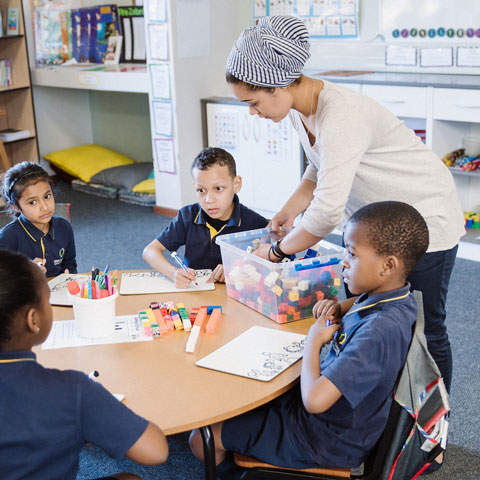As we look forward to a new year, a lot of us may already have set our new year’s resolutions. For parents however, the question is, “have you taken time to set academic goals with your child?” If your answer is no, or not yet, then now may be the right time for you to start Academic Goal Setting with your little ones.
In my experience as an educator, I have come across many parents who want to get actively involved in their children’s education but, more than often, do not know where to start or the best way to do so. I continue to advise parents to focus on collaborative goal setting with their children. Nova Pioneer believes this is a great way to contribute to their children’s educational success.
Setting Growth Goals
In the previous year, my learners and I set ‘Growth Goals’ together. This was after we had a conversation about understanding our Always Growing culture principle. They took the lead and wrote down their academic growth goals. These were hung up the wall to serve as a constant reminder of what they were working towards.
Each term, we took some time to reflect and track how far we were to reaching our goals. This was important as it allowed the learners a chance to celebrate their achievements and also note down some growth areas.
Academic Goal Setting should not be treated like New Year’s Resolutions – set once and never looked at again. It should be an ongoing process which requires tracking and reflection so that learners are constantly aware of the expectations they have set for themselves.
How do I set goals with my child?
It is a good idea to have conversations around how they picture their future then introduce goal-setting to them as a building block towards their desired future. A great way of setting goals is through the use of the SMART mnemonic. SMART stands for:
S – Specific
M – Measurable
A – Attainable
R – Relevant
T – Time-bound
For example, instead of having “to pass grade 4” as a goal, it is more powerful to use the SMART goal “To achieve more than 70% in each subject at the end of term 1.”
How will my child benefit from goal setting?
Academic Goal Setting will not only pave the way for academic success, but it also has other great benefits for learners. Research has uncovered many key aspects of goal setting theory and its link to success (Kleingeld, et al, 2011). Setting goals is linked to self-confidence, motivation, and autonomy (Locke & Lathan, 2006).
Here are more benefits:
Active engagement: The goals are set by the students themselves. Therefore, they work actively towards achieving them. This means they place more effort in their studies to ensure they accomplish the goal.
Accomplishment: Celebrating the small successes is a great part of goal-setting as it motivates the learners to achieve more. These accomplishments contribute to increased self-confidence.
Awareness of strengths and weaknesses: Goal setting allows students to be aware of their potential. They discover their strengths and weaknesses which allow them to set more attainable goals in the future. Furthermore, they can aim higher and advance their learning.
Collaborative goal-setting, therefore, increases parental involvement, broadens students’ thinking and provides a map for the school year.
Here’s a free reflection template to use as a goal tracker with your child.
Written by Khensani Mabona – a resident teacher at Ormonde Primary

